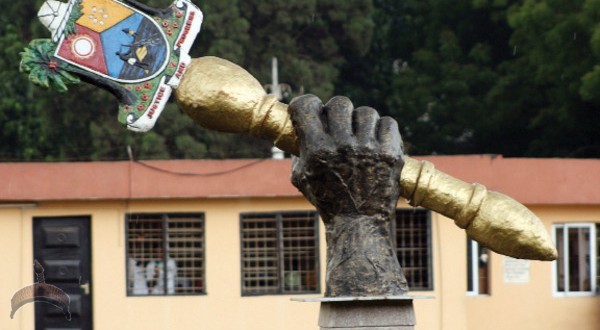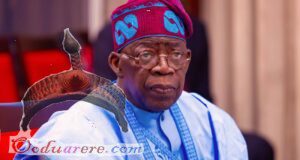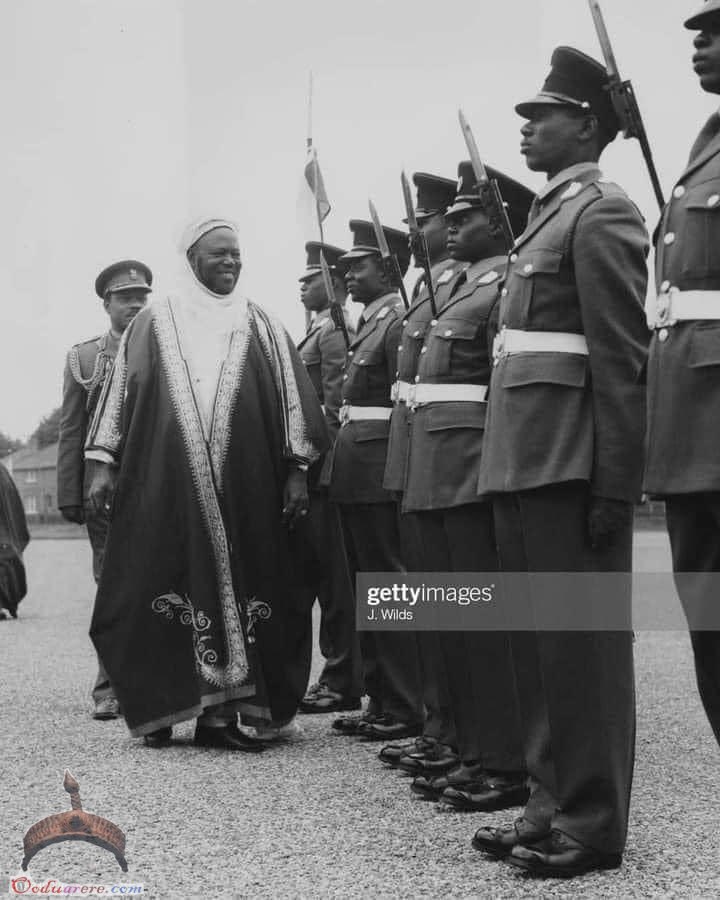The 8th Senate’s achievements in the month of March cannot be over-emphasized as the growth and development of the entire nation has and will be affected positively by some of its accomplishments. Highlighted below are some activities that are worthy of mention in the Bukola Saraki-led 8th Senate in the month of March.
Passage of the #2016Budget
Despite the lapses and controversy that trailed the budget, the Senate on Wednesday, March 23, passed the 2016 budget in time as promised. The 2016 Budget of N6,060,677,358,277 submitted by President Muhammadu Buhari was reduced by N17,002,641,773.
The Senate debated the bill on January 20, 21, 26 and 27 respectively. The bill was read a second time on January 27, and consequently referred to the committee on appropriations for further legislative actions.
While preparing details of the bill, the appropriation committee adopted a benchmark price of 38 US Dollars per barrel on crude oil based on the Medium Term Expenditure framework (MTEF) and Fiscal Strategy Paper (FSP). The executive proposals of crude oil production of 2.2 million barrels per day and an exchange rate of 197 Naira to one US Dollar was adopted. After which the highlight of the bill as recommended by the committee was an aggregate expenditure of 6.06 trillion Naira.
Motion by the Nigerian Senate on International Women’s Day
The 8th Day of March 2016 marked the International Women’s Day with this year’s theme: #PledgeforParity.
In commemoration of this day, the Nigerian Senate through the Chairman Senate Committee on Women Affairs, Senator Oluremi Tinubu representing Lagos Central presented a Motion on Gender Equality and fair treatment among women in Nigeria. The Motion was co-sponsored by the Vice-Chairman Senator Stella Oduah and other members of the Committee.
Senator Oluremi Tinubu urged the Senate to support the cause of women in Nigeria, stating that Nigerian women represent courage and resilience and without them the country as a whole cannot move forward. The six key aspects of the bill included: equal Access to education for women and girls; strengthening of the laws on violence against women; ending the abduction of girls; the sustenance and promotion of entrepreneurship opportunities; ensuring gender mainstreaming and gender equality/equity in the activities of the legislature; and pushing for increased female participation and inclusion in decision-making and governance across all levels.
The Gender Equality Bill
The Bill For An Act To Incorporate and Enforce Certain Provisions of The United Nations Convention On The Elimination of All Forms of Discrimination Against Women – the protocol to the African Charter on Human and People’s Rights on the Rights of Women in Africa, and Other Matters Connected Therewith sponsored by distinguished Senator Biodun Olujimi representing Ekiti-South Senatorial District was presented by the Senator to be read for the Second time but could not scale through.
Despite the disparities exhibited with the votes that led to it not passing second reading, Senate President Bukola Saraki salvaged the situation by calling a private meeting with the sponsor of the bill Senator Olujimi and the major critic of the same bill Senator Emmanuel Bwacha (Taraba South). The aim of the meeting was to come to a reasonable conclusion and find a mutual ground for both parties. The Senate President made sure the decision was made and agreed upon by both parties for the gender equality bill to be re-presented in the floor of the Upper Chamber.
National Assembly Business Roundtable #NASSBER
The #NASSBER which was held at the New Senate Building of the National Assembly on the 21st of March 2016 had lots of stakeholders from different sectors present and a couple other facilitators who anchored most of the segments scheduled for that day.
The round table focused on a total of Eleven (11) key sectors and important areas of the nation’s economy. These areas included:
Competition – The government’s policy shift from public sector provision of infrastructure and other services to the private sector has increased the need to ensure that there is no abuse of dominant positions in the market.
Doing Business – Small and Medium Enterprises (SMEs) play a significant role in the socio-economic development of most developed and emerging countries all over the world.
Roads Infrastructure – There is an urgent need for the review of legislations governing the roads infrastructure sector.
Rail Infrastructure – Existing legislation in the rail infrastructure sector was drafted and enacted to support an outmoded model.
Maritime Infrastructure – Government have proved to be poor managers in the maritime infrastructure sector and public finances are thinning down.
Public-Private Partnership – Even as government makes commitment towards tackling infrastructural deficit, the government often does not and cannot source the funds to follow through.
Taxation – Nigeria has a prohibitive tax system.
Finance and Investment – Micro, Small and Medium-sized enterprises (MSMEs) represent 96% of Nigerian businesses, so it is crucial to support their growth and innovation.
Arbitration and Dispute Resolution – The ability of a legal system to efficiently handle complex and all disputes is crucial for investor confidence.
e-Business and Intellectual Property – The application of information and communication technologies (ICTs), support most business activities today.
All resolutions made by each hearing were submitted to the Nigerian Senate for further deliberations
Public Hearing on Bankruptcy & Insolvency Bill
The Senate committee on banking and finance institution held a public hearing on Monday, March 14 at the National Assembly on the bankruptcy and insolvency act, (repeal and re-enactment) bill, 2016.
The aim of the public hearing was to strengthen Nigeria’s business-related legislations by examining the bankruptcy laws.
The bill which is one of the priority bills of the 8th Senate plays an important role in attracting both domestic and foreign investments as well as promoting innovation and entrepreneurial development. This bill is also aimed at regulating the free exit out of markets in the event of losses. An analysis of the World Bank’s Doing Business Report revealed that Nigeria needs stronger bankruptcy and insolvency laws to guide the process that will ensure that such firms that incur losses can easily break even and exit the markets.
With the passage and signage into law of the bankruptcy bill, such a system would attract more individuals and corporations to want to do business in Nigeria, because they would know that their losses are regulated by our laws.
Visit to Nigeria by the South African President, Jacob Zuma
It was a full house in the Green Chamber of the National Assembly, when the South African President, Jacob Zuma accompanied by President Muhammadu Buhari visited.
Zuma advised for the partnership of both sister countries to not only to strengthen bilateral relations but also to partner together in pursuit of the continental integration, peace, security and development.
The visit of President Jacob Zuma to the National Assembly was symbolic and historic on many levels.
Public Hearing on Frivolous Petition Bill
The Frivolous Petition Bill which was sponsored and presented on the floor of the Senate Chamber by Senator Bala Ibn Na’allah (Kebbi South) received a lot of backlash from online and Civil Society groups.
A Senate joint Ad-hoc Committee Chaired by Senator Rafiu Ibrahim (Kwara South) was set up to look into the Frivolous Petition Bill and a public hearing was organised in that regard.
Social Media influencers, legal experts, and a representative of the Chief Justice of Nigeria, were present at the hearing and vital points were raised and deliberated. Resolutions made will be further worked on by the Committee and will then be submitted to the entire Senate for re-evaluation.
Oversight by Petroleum Committee on Fuel Crisis
As Nigerians continued to groan under fuel scarcity, the Senate summoned the Minister of State for Petroleum Resources, Ibe Kachickwu, to appear before it for explanation on what he is doing to end the rising scarcity in the country.
The fuel stations visited by the Senate Committee, included: Forte Oil, opposite Transcorp Hilton in Maitama District, Abuja, Oando Filling station, Zone 4, Abuja, Total Fuel Station in Asokoro District.
Abang Dove writes from Abuja, she tweets with @abangdove
 Ọmọ Oòduà Naija Gist | News From Nigeria | Entertainment gist Nigeria|Networking|News.. Visit for Nigeria breaking news , Nigerian Movies , Naija music , Jobs In Nigeria , Naija News , Nollywood, Gist and more
Ọmọ Oòduà Naija Gist | News From Nigeria | Entertainment gist Nigeria|Networking|News.. Visit for Nigeria breaking news , Nigerian Movies , Naija music , Jobs In Nigeria , Naija News , Nollywood, Gist and more









